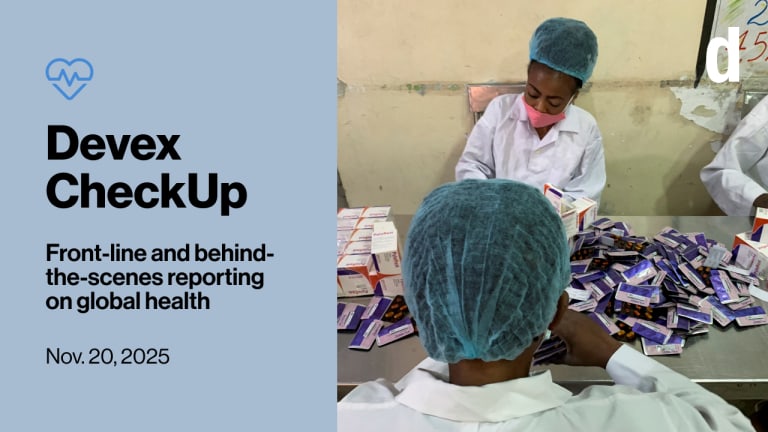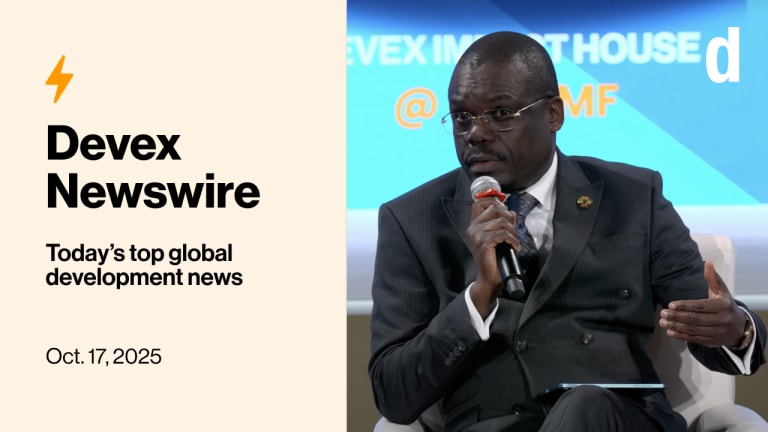
NAIROBI — Widespread campaigns to distribute COVID-19 vaccines in Africa will likely only begin in the second quarter of next year because of challenges around accessing vaccines and preparing countries for their distribution, said John Nkengasong, Africa Centres for Disease Control and Prevention director, during a press conference Thursday.
“It will not be, in my view, up until the middle of next year before we start truly getting vaccinations into Africa,” he said.
Positive interim results from three candidate vaccines have bolstered global confidence that there is an end in sight to the pandemic. But not all of these vaccines are appropriate for a roll out in the African context.
“The largest immunization drive in Africa’s history is right around the corner, and African governments must urgently ramp up readiness.”
— Dr. Matshidiso Moeti, regional director for Africa, World Health OrganizationThe cold temperatures required for the storage and distribution of the Pfizer-BioNTech and Moderna vaccines would make them a challenge to distribute in Africa quickly, Nkengasong said. While the Oxford-AstraZeneca vaccine had lower interim efficacy results, it does offer the best possibility for distribution on the continent because the temperature required isn’t as low and manufacturers can produce it at a lower price.
Wealthier nations have preordered large quantities of vaccine candidates, raising concerns over equity in distribution. But there are mechanisms in place to help African nations with access.
Africa CDC is coordinating with the COVAX Facility, a global initiative working on equitable COVID-19 vaccine access, as well as Gavi, The vaccine alliance, the Coalition for Epidemic Preparedness Innovations, World Bank, and African Export-Import Bank.
COVID-19 vaccine work for UNICEF is about to become more intense. Here's why.
UNICEF's vaccine deputy explains what logistical hurdles need to be overcome — and what opportunities exist — as the agency prepares to help roll out vaccines, as early as the next few months.
COVAX aims to provide African nations with enough vaccines to cover 20% of their populations. Dr. Matshidiso Moeti, regional director for Africa at the World Health Organization, said that it might start providing African nations with vaccines to cover about 3% of populations, primarily those at highest risk such as health workers and elderly people, by the end of the first quarter of next year, to then scale up to 20%.
But to achieve levels of herd immunity there is a need to vaccinate about 60% of the population, Nkengasong said, meaning the continent will need to procure the funding to fill this gap.
To reach this threshold, it needs about 1.5 billion doses of vaccines, with the understanding that each vaccinated person receives two doses. To pay for this, the continent needs to mobilize about $10 billion to $12 billion, he said.
An analysis of data from 40 African nations found that countries have on average a score of 33% in readiness to safely and effectively roll out a vaccine, far below the 80% target, Moeti said.
Only 49% of countries have identified priority populations for vaccination and have plans on reaching them; 44% have coordination structures in place; 24% have adequate plans for resources and funding; 17% have data collection and monitoring tools ready; and 12% have communication plans for building trust in communities.
“The largest immunization drive in Africa’s history is right around the corner, and African governments must urgently ramp up readiness,” Moeti said in a statement.
Some key challenges facing the rollout include vaccine hesitancy, as misinformation about vaccines circulates across the continent, as well as adapting strategies to target adults, when typically vaccination campaigns target children.
Nkengasong expressed concern that after wealthier countries start their vaccination campaigns, airlines and countries will require vaccine certificates for travel, which will present a challenge for African populations if they do not have access to vaccines.
“Then our populations are stranded. This is not hypothetical, I’ve been in public health for 30 years and I’ve seen how Africa has been neglected when those interventions are available,” he said, adding that HIV drugs were available globally in 1996 but it took a decade for people on the continent to access them.









